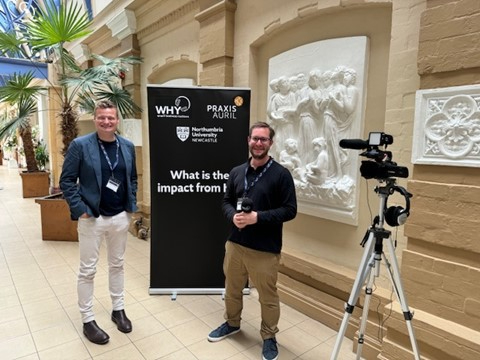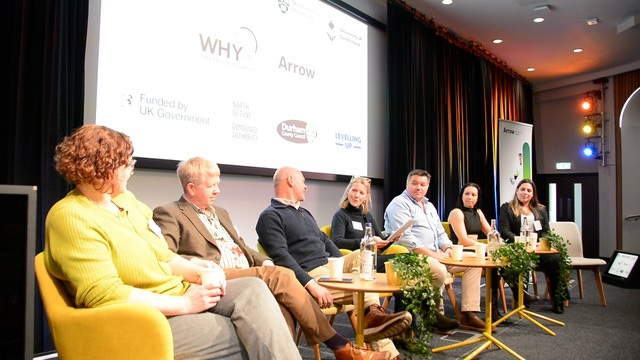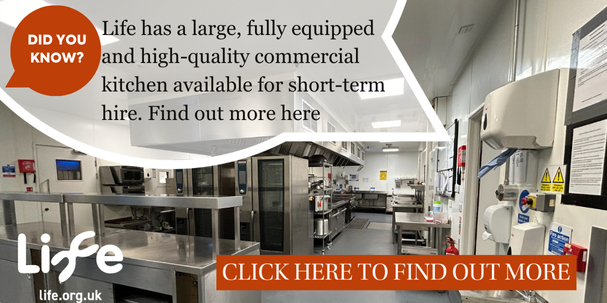
You don’t have to look far to find calls for better collaboration between universities and business. The Tory Government’s 2017 Industrial Strategy placed university and business collaboration at the core of its agenda, acknowledging that businesses could access new knowledge from universities that would directly boost business performance.
This culture is prevalent in STEM (science, technology, engineering, and mathematics) based disciplines where university-business collaboration is firmly established. The collaboration between AstraZeneca and the University of Oxford in April 2020 to co-create a vaccine aimed at preventing Covid-19 was based on such a partnership.
University Technology Transfer Offices have been developed to manage this activity, and such work sits firmly within university corporate strategy.
Yet, for smaller firms not looking to patent the latest nascent technologies, accessing university talent and expertise can be difficult.
With no obvious front door aimed to attract businesses into the university, finding the right contact or even getting past the switchboard may be a problem.
- Read more: Building blocks to supercharge sustainable housebuilding
- Read more: Great Run goes the extra miles
In the past, many businesses have described university campuses as intimidating, especially if the founder doesn’t have any experience attending or working with a university.
Furthermore, universities are perceived as having their own language — having a reputation for being slow and cumbersome.
Despite these challenges, the Government-funded Help to Grow: Management programme is an example of bringing universities and businesses together. Launched in 2021, the programme directly supports small firms (who make up 99 per cent of UKplc ) in leadership and resilience in order to boost business performance. Funded by the Treasury and delivered by the Small Business Charter and accredited business schools, the course has supported nearly 10,000 small firms across the UK. Providing a catalyst, bringing business and university academics closer together.
Despite the success of this isolated programme, the UK university sector as a whole faces significant challenges surrounding funding. There is no secret that traditional means of securing government funding relies on world ranking, high-quality research outputs. However, such funding models mean that academics aren’t incentivised to leave the building and share their work with non-academics and the industry.

A closer inspection of previous research highlights a lack of confidence, industry connections, and negotiation skills as key barriers preventing academics from working more closely with businesses. Indeed, in June 2024, The National Centre for Universities and Business (NCUB) found a five per cent decline since 2020/21 in the number of small firms working with UK universities.
This is a significant issue as university interaction and exchanging knowledge is essential to drive growth and tackle several structural weaknesses in the UK economy.
Key projects such as ‘Making Academics Knowledge Exchange Ready’, designed by Northumbria, Manchester Metropolitan and Ulster universities in partnership with the Innovation Growth Lab, provide new vehicles to better support knowledge transfer between universities and businesses but remain in their infancy.
In September 2021, a small team at Northumbria University working with small firms launched the Why Small Business Matters podcast to directly engage with business leaders, policymakers and advisers. The podcast explores how business owners and entrepreneurs navigate the challenges in today’s landscape, as well as highlighting the importance of university and business collaboration.

Guests who have appeared on the podcast include well-known business figures, Oli Barrett, Baroness Tanni Grey-Thompson, John McCabe, Lucy Winskell OBE, Richard Swart, Toby Bridges, Jessica Williams, Nathasha McDonough, Jamie Hardesty, and Michael Hayman MBE. There was also a live podcast event at Baltic chaired by Caroline Theobald CBE.
The Arrow Innovation programme between Durham, Newcastle, Northumbria and Sunderland universities provides another tangible vehicle for uniting academic researchers and industry together to foster innovation. Access to facilitating, testing labs and proof-of-concept studies are all available to help firms boost their business performance.
Supporting academics to work with industry is on-going. But creating that ‘front door’ and providing easy entry into a university is paramount. Fostering conversations between academics and industry needs to be a priority for any university.
Dr Matt Sutherland is an Associate Professor in Marketing at Northumbria University. He has secured more than £5m worth of research income from his extensive knowledge exchange activity with industry. He also founded international business podcast Why Small Business Matters and uses this platform to communicate knowledge exchange and university and business collaboration activity. Outside work he is a Non-Executive Director at PraxisAuril and the Open North Foundation. He is also a member of the management board for the Small Business Charter, part of the Chartered Association of Business Schools











